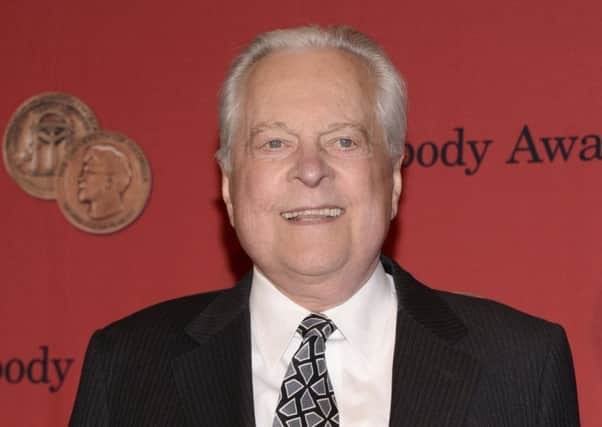Obituary: Robert Osborne, face of Turner Classic Movies and encyclopedia of classic Hollywood


Jennifer Dorian, general manager of TCM, announced Osborne’s death on Monday. “His calming presence, gentlemanly style, encyclopedic knowledge of film history, fervent support for film preservation and highly personal interviewing style all combined to make him a truly world-class host,” said Dorian.
Osborne was there from the inception of Ted Turner’s commercial-free classic movie network. To open its first broadcast on 14 April, 1994, he introduced Gone With the Wind. In the decades after, he remained Turner Classic’s primary – and often sole – host.
Advertisement
Hide AdAdvertisement
Hide AdFor TCM viewers, Osborne was a constant and comforting presence. He presented nightly films and movies packaged in series like The Essentials with bits of history and trivia. He also conducted interviews with stars for the network’s guest programmer evenings.
In a 2014 interview Osborne recalled his long-standing obsession with Hollywood. Even in college, he maintained a black book of his research into films and the details of their making. “I was ready with all that information when a job was created. I prepared for something that didn’t exist,” said Osborne.
Born in Colfax, Washington, Osborne studied journalism at the University of Washington and spent two years in the Air Force in Seattle. He then moved to Los Angeles to make it as an actor, and was signed by Lucille Ball and Desi Arnaz’s Desilu Studios. Ball, who remained a mentor to him up until her death in 1989, encouraged Osborne to pursue writing – “especially after she saw me act,” Osborne would recall.
He joined the Hollywood Reporter in 1977 and for years wrote its Rambling Reporter column. But he found his home at TCM. With Osborne as its ambassador, the cultishly adored TCM developed into a wider-reaching mainstay of movie love.
“I get stopped on the street all the time,” Osborne said. “People say: ‘You got me through cancer last year. You got me past unemployment. You take me away from my troubles.’ Exactly what movies did in the 1930s and 40s.”
Osborne also wrote several official histories of the Academy Awards.
He was unabashed about his proclivity for 1930s-50s-era Hollywood. Osborne’s connection was forged early on, and his affection for Golden Age Hollywood remained forever undimmed. “We don’t seem to want people bigger than life. We want people who look ordinary,” Osborne lamented in 2014.
But Osborne’s genuine passion for film connoisseurship was unquestioned by the TCM viewers who happily watched him stride into their living room, again and again.
“If I wasn’t doing it [on TV] I’d be doing it as a hobby,” Osborne said, “so I might as well get paid for it.”
JAKE COYLE